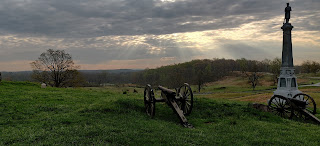I’ve had a couple of poems running through my mind today, and also a song. The first poem is by Mary Oliver, and includes a line about ‘Daniel, brave even among lions.’ That’s what called it to mind – we’re considering a preaching series on Daniel this summer. The poem speaks to me about how we carry grief, and it strikes me that we are all carrying some grief these days – whether it is for people who have died recently or long ago, or for a loved one who is suffering, or simply an increasing awareness of the brokenness of this world. And my prayer is that we might practice carrying these griefs well, and be gentle with ourselves and each other in this. The poem is below:
Heavy
That
time
I
thought I could not
go any
closer to grief
without
dying
I went
closer
and I
did not die.
Surely
God
had
His hand in this,
as
well as friends.
Still,
I was bent,
and my
laughter,
as the
poet said,
was
nowhere to be found.
Then
said my friend Daniel
(brave
even among lions),
“It’s
not the weight you carry
but
how you carry it –
books,
bricks, grief –
it’s
all in the way
you
embrace it, balance it, carry it
when
you cannot, and would not
put it
down.”
So I
went practicing.
Have
you noticed?
Have
you heard
the
laughter
that
comes, now and again,
out of
my startled mouth?
How I
linger
to
admire, admire, admire
the
things of this world
that
are kind, and maybe
also
troubled –
roses
in the wind,
the
sea geese on the steep waves
a love
to
which there is no reply?
-
Mary
Oliver
The
second poem came to mind as I was reflecting on our worship service on Sunday –
on how good it felt for me to be back in our space and physically present with
many of you. And how much there is to be figured out yet – so many changing
details, so many adjustments to try to be wise and careful in these days. I can
get overwhelmed by the details and by the challenges of continuing to adapt more
‘in person’ commitments while maintaining virtual stuff too. This poem speaks
to me of the joy of regathering, and how there’s a lot to be lived into yet,
and it’s a lot of work. I hear in it an invitation to move forward remembering
that it’s God’s work, and God invites us to rest. It’s a sonnet by Wendell
Berry, and one I’ve shared before in sermons:
1979
Number X (the Sabbath Poems)
Whatever
is foreseen in joy
Must
be lived out from day to day.
Vision
held open in the dark
By our
ten thousand days of work.
Harvest
will fill the barn; for that
The
hand must ache, the face must sweat.
And
yet no leaf or grain is filled
By
work of ours; the field is tilled
And
left to grace. That we may reap,
Great
work is done while we’re asleep.
When
we work well, a Sabbath mood
Rests
on our day, and finds it good.
--Wendell
Berry
And
finally a song:
Come,
Lord Jesus, send us your Spirit,
renew
the face of the earth.
Come,
Lord Jesus, send us your Spirit,
renew
the face of the earth.
This
is the chorus we’re using right now in our prayer time with Teach Us to Pray
and it’s become a prayer for me. A prayer to be aware of the Spirit’s presence
and nearness, and to see the Spirit’s work renewing me, and each of you, and
our world.








